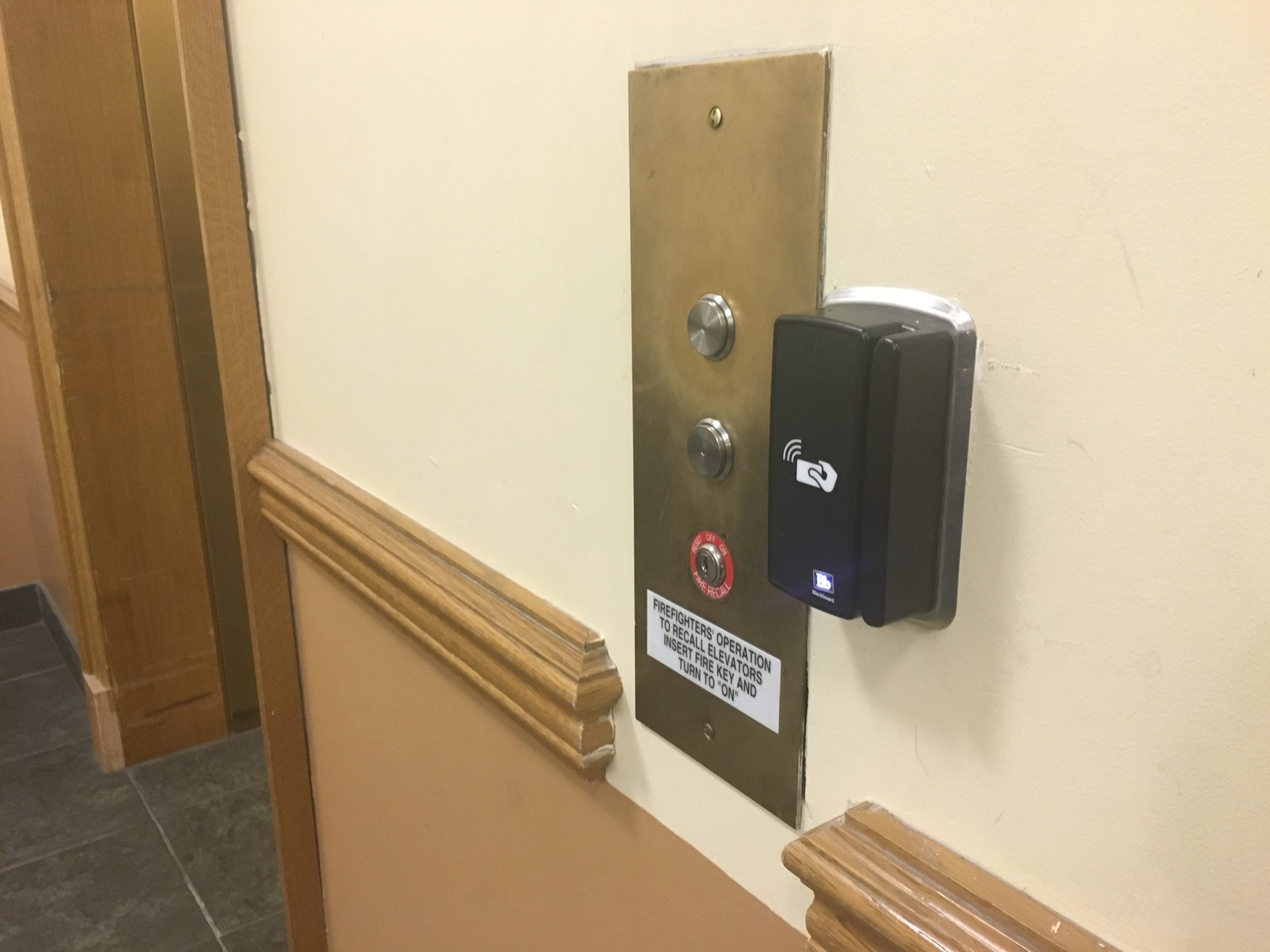In the recent weeks, the Georgetown University Police Department (GUPD) has been facilitating the installation of additional GOCard readers in all campus residence halls, with the exception of Copley Hall, LXR Hall, and Nevils. In addition to the ones already in place at building entrances, GUPD is helping set up these card readers at lobby level elevators and stairwell doors.
“We are presently in the process of installing the readers and infrastructure equipment in the residence halls. Once the new equipment is installed and tested the readers will be active,” wrote Jay Gruber, chief of police and director of the Department of Public Safety, in an email to the Voice. “I hope that this occurs before the end of the semester.” In certain residence halls, these new card readers have already been activated.
In order to access the dormitory rooms with this additional security measure, building residents are required to swipe their GOCards into the building, swipe in with the security guard on duty, and swipe once more to either gain access to the stairwell or press the elevator call button.
Currently, security guards, either student or Allied Barton Security officers, are stationed to monitor entry on the lobby level of most residence halls at all times. Before the Fall 2016 semester, there is to be a reevaluation of the current hours and shifts. Despite the new measures, “the current hours for Student Guards and Allied Barton Security Officers will not change for the remainder of the academic year,” wrote Gruber. Student guards were not notified of any policy changes due to the recent installations of new card readers.
Jackson Dalman (COL ’19), a resident of Darnall Hall, said, “I don’t think we need three rounds of checks just to get into our dorm. I feel like the Student Guard should be enough.” He felt this echoed many other residents’ feelings, as this additional measure makes access more difficult for residents and intruders alike.
In addressing the university’s decision to implement this policy change, Gruber pointed to GUPD’s continuous effort to identify and prioritize security gaps on campus. GUPD identified a gap in security regarding the relative ease of residence hall access. “Once a person accesses the lobby, the only security measure keeping someone, who should not be accessing the residential portion of the building, from doing so is a static guard post. Looking at human factors analysis, this static post can never be 100 [percent] effective,” he wrote in an email to the Voice.
On Oct. 13, such an incidence occurred when an adult male intruder gained access to Darnall. The addition of card readers is meant to provide another layer to reduce the likelihood of similar events from occurring, according to Gruber.
Due to limited funding, GUPD is not installing these additional readers in Copley, LXR, and Nevils. They are to look to make these additions once funding becomes available.







